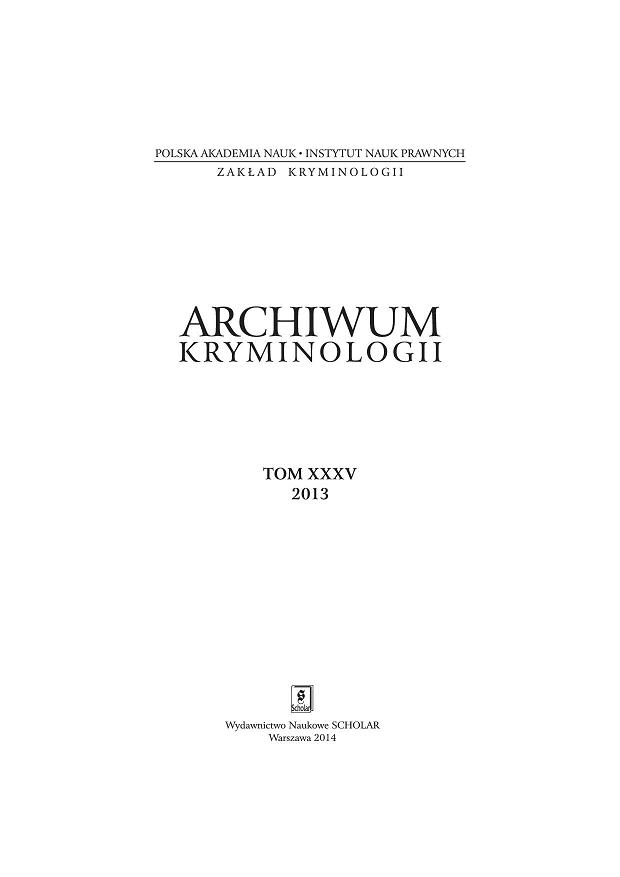Charakterystyka członka zorganizowanej grupy przestępczej z punktu widzenia kryminologii humanistycznej
Characteristic of an organized crime group member in the light of humanistic criminology
Author(s): Monika KotowskaSubject(s): Law, Constitution, Jurisprudence
Published by: Instytut Nauk Prawnych PAN
Keywords: ORGANIZED CRIME GROUP; HUMANISTIC CRIMINOLOGY;
Summary/Abstract: The key thesis in humanistic criminology is based on the premise that criminal behaviour in individuals is always an effect of their sovereign decisions, even if – as this is the case in every the type of human behaviour – it is influenced by a variety of factors. The main problem is the origin of a crime, understood as an individual process leading to a crime, or in cases where minors are involved as perpetrators – to a punishable act. The origin of crime would then be concerned with a varied and mostly complex phenomena of the human psyche. The core notion here being the volitional process, which is pivotal when deciding if law has been broken. In humanistic criminology, empirical research is not only about diagnosing objective premises leading to a crime, but also about analysing the behavioural patterns displayed by a particular individual, with such person's specificity, realm of experience, the relevant psycho-logical components and their core element, i.e. the act of will. The aim of this paper is to present a criminal biography of a person sentenced for participation in an armed organised crime group and to attempt an interpretation of the biography from the humanistic criminology perspective, as proposed by L. Tyszkiewicz. The analysis employed the biographical method and a case study concerning a concrete perpetrator. The course of life of the researched individual and his involvement in the crime group was de-scribed on the basis of an interview. The accuracy of thus obtained data was verified against the body of evidence included in the files of the inmate. The research was conducted in the penal institution where the convict serves a life sentence. The detailed results of the research are included in the article.
Journal: Archiwum Kryminologii
- Issue Year: 2013
- Issue No: XXXV
- Page Range: 283-304
- Page Count: 22
- Language: Polish

